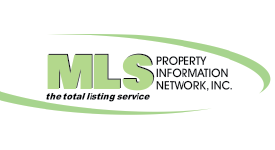Modular, manufacted & mobile homes: What they are & how to get funding for them

Homes come in a variety of sizes, shapes, types and mobility options. And, while mortgages or saved monies are required to purchase all types of homes, it’s always a good idea to know what’s required for your specific home transactions. What better place to start than identifying the type of home you’re searching for?
For those searching for a manufactured home or other type of non-traditional home, here’s a quick guide to three of the most common types available and their funding options:
Modular home
Modular homes are created in individual sections. These sections are typically built off-site and are then transported to the property where the home will be placed. Because of their more relaxed price point, these homes have increased in popularity, which means more financing options.
You’ll still have your monthly payment and may apply for a more traditional mortgage where these homes are involved. The Federal Housing Administration, or FHA, offers loans for these types of homes. VA (Veterans Affairs) loans are also available for modular homes, as are construction loans.
Manufactured home
A manufactured home refers to a home that’s built in another location, then transported to your desired property. These homes come in a variety of sizes, with the smallest wearing the phrase “tiny home.” While they have many sizes and shapes, these homes must meet the standards provided by the Department of Housing and Urban Development, or HUD.
A manufactured home loan can be something as simple as applying for an FHA loan or VA loan. However, it’s important to remember that you will still have a down payment on this mortgage, as it may operate with only a few changes to the standard versions of these loans.
Personal loans have also been used to purchase manufactured homes, since their price points tend to be lower than conventional homes. However, conventional loans and traditional mortgages are rarely given by mortgage lenders for this particular type of home.
Mobile home
Mobile homes are typically homes without a permanent chassis that were made before June 1976. Like manufactured and modular homes, these homes are prefabricated and often transported to their “permanent” chassis, putting the difference mostly on when the home itself was manufactured and what guidelines were followed when it was being built.
Loans for mobile home options are a little more limited, but not impossible to come by. For example, while a mobile home may not qualify for a Title II loan under the FHA standards, it can qualify for a Title I loan. Likewise, qualifying for things such as chattel loans - where the lender uses the home itself as collateral - are also available for mobile home purchases.
Whether you're searching for a manufactured home or have an affinity for older mobile homes, figuring out what you need from your home is the first step. Once you have found what you want, finding funding, such as FHA loans or a personal loan, is the optimal next step.
The funding process is similar to a conventional loan where you need to have a minimum credit score, money for a down payment and must meet the lender’s requirements.
If you run into issues with your financing or simply have questions, reach out to your agent. They may be able to put you in touch with the appropriate lender to help get you started on your homebuying journey.
About the Author

Kevin Kelleher
What sets me aside from other agents is my extensive knowledge and experience. I started out as a young man in construction, learning everything from anyone that could teach me, so before long I had my own company as a remodeling contractor. I then specialized in historical renovations, before long I had the pleasure of working on great jobs with great clients for over 30 years. For the past 12 years, I have been enjoying the process of assisting my faithful clients with real estate transactions. My knowledge of houses has given my clients a huge advantage when viewing properties and what is needed when selling. I have always enjoyed working with people and helping them in probably the largest investment they will make. I hope you will give me the chance to show you that honesty and hard work does pay off in the end whether you're buying or selling.
